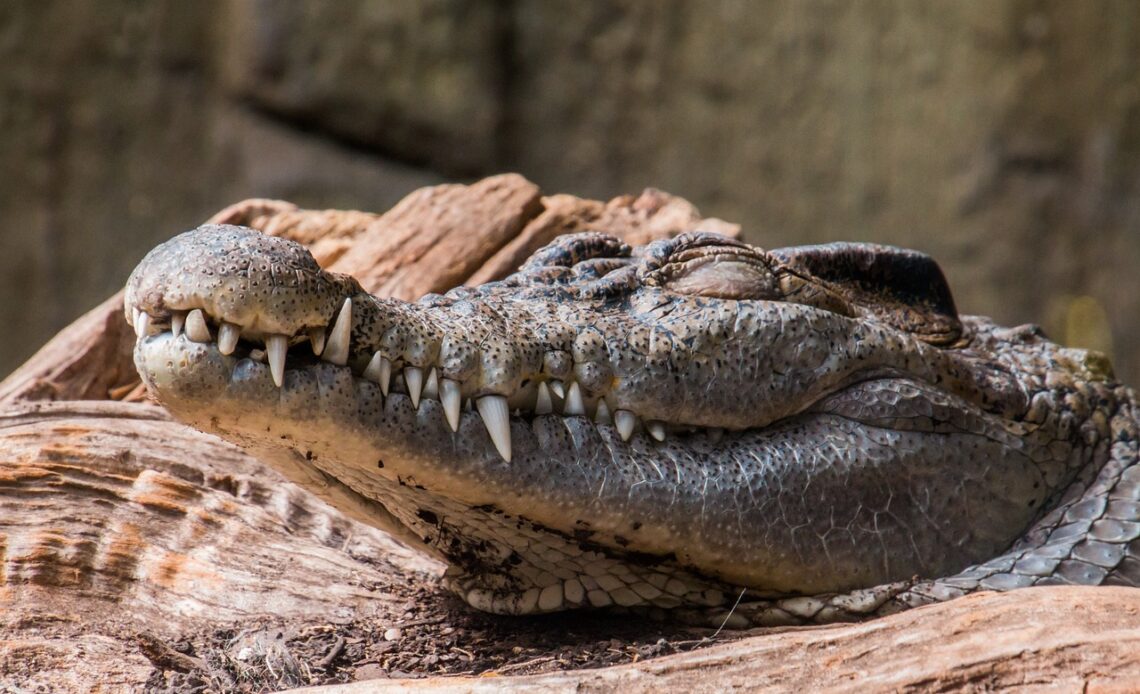
Iguanas are fascinating creatures that make great pets for reptile lovers. One common question among prospective iguana owners is whether or not iguanas have teeth. The answer is yes, but their dental anatomy is quite different from that of mammals.
Iguanas have teeth that are used for biting and grinding plant material such as leafy greens, fruits, and vegetables. Unlike human teeth, iguana teeth are not attached to sockets in the jawbone; they are fused to the inner side of the jawbone. This allows for continuous replacement of their teeth throughout their lifetime.
The teeth of iguanas are curved to help them effectively grind plant material. However, they do not have the ability to chew their food. Instead, they use their powerful jaws to break down the food and quickly ingest it. Proper nutrition and dental care are crucial for the health of pet iguanas. A balanced diet of nutrients and regular examination of their teeth can help keep them healthy and strong.
In summary, iguanas do have teeth, but their dental anatomy is quite different from that of mammals. Their teeth are constantly replaced, and they are primarily used for biting and grinding plant material. Pet iguanas require proper nutrition and dental care for optimal health.
The Dental Anatomy of Iguanas
When it comes to the dental anatomy of iguanas, it’s important to note that these reptiles are herbivores. This means that their teeth are primarily used for biting and grinding vegetables, rather than hunting or defending themselves from predators. Iguanas have teeth located in both their upper and lower jaws, and these teeth are curved to help them grind plant material.
One interesting fact about iguana teeth is that they are constantly being replaced throughout the animal’s life. This process is known as dental polyphyodonty and ensures that the iguana always has strong and healthy teeth for their herbivorous diet.
To keep your pet iguana healthy, it’s important to provide them with a balanced diet of leafy greens, fruits, and vegetables. Owners should also make sure that their iguanas’ teeth are healthy and strong by providing them with adequate dental care and nutrition. With proper care, iguanas can live long and healthy lives as beloved pets for reptile enthusiasts.
The Feeding Habits of Iguanas
Iguanas are herbivores and their diet primarily consists of leafy greens, fruits, and vegetables. Since they do not have molars, they cannot chew their food like humans do. Instead, they break down the food in their mouths using their powerful jaws and swallowing it quickly. These teeth are specialized for biting and grinding vegetation to make it easier to digest. Iguanas have a unique ability to extract nutrients from plants that are usually difficult for other animals to digest.
Owners must ensure that their pet iguanas receive a balanced diet with all the necessary nutrients. Feeding your iguana only vegetables or fruits is not enough, and can result in health problems such as metabolic bone disease. You should also avoid feeding your iguana high oxalate-containing plants, such as spinach and cabbage, as these can lead to kidney stones. It is also essential to provide fresh water for your pet to stay hydrated.
Additionally, iguanas need to keep their teeth healthy and strong. Since their teeth are constantly growing, they need to be regularly worn down by eating rough vegetation. Owners can also provide their iguanas with additional sources of calcium to promote the growth and strength of their teeth.
In conclusion, iguanas may not chew their food, but their specialized teeth are designed to bite and grind vegetation easily. Providing a balanced diet and keeping their teeth healthy is crucial for the overall health and wellbeing of your pet iguana.

